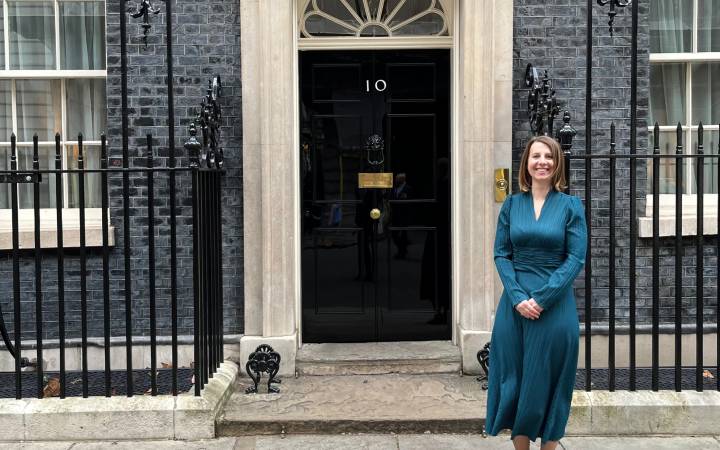A happy workforce is good for business
Posted Tuesday 26 January 2010
 Keeping staff happy might not be a high priority for employers in the economic downturn. But a report from Kingston University argues that a contented workforce can help an organisation to succeed and can even make the difference between whether or not a struggling company survives the recession.
Keeping staff happy might not be a high priority for employers in the economic downturn. But a report from Kingston University argues that a contented workforce can help an organisation to succeed and can even make the difference between whether or not a struggling company survives the recession.
The report, Creating an Engaged Workforce, commissioned by the Chartered Institute of Personnel and Development, was the product of a two-year study of eight private and public sector organisations. It defined 'engaged' employees as "being positively present during the performance of work by willingly contributing intellectual effort, experiencing positive emotions and meaningful connections to others".
Dr Kerstin Alfes of Kingston University Business School, the project's lead researcher, said engaged employees performed better, were more innovative than others, saw their workload as more manageable and were more likely to stay with their employer, as well as offering a higher quality service to customers. "The most important factor in creating an engaged workforce is whether people find meaning in their job, so it's important that employers explain to staff how they are contributing to their organization," she said. However she warned against excessive dedication to the job. "If employees can't or won't switch off from work it can ultimately lead to lower performance; working at a high level for long periods of time is not sustainable."
Dr Alfes said the research was particularly relevant in the current economic climate. "Our research has clearly demonstrated the positive impact of employee engagement on both an organisation's success and on an individual's well-being. This is particularly important in an economic downturn; engagement means that staff are willing to go the extra mile to get things done and if an organisation is struggling that could make the difference between whether or not they survive."
She said one of the case study organisations, a plastics company under pressure to cut costs, had made savings by encouraging employee engagement. "The company had been very hierarchical, staff did not talk to managers, so they tried to establish a more open culture which allowed people to suggest how they could work more efficiently and productively," said Dr Alfes.
The report, written by an Employee Engagement Consortium research team based at Kingston University's Business School, also confirms that employee voice - opportunities for employees to get involved in discussion about work-related matters and communicate their opinion about aspects of their job - is important. Just a third (34%) of employees are the 'vocal-involved', who perceive their work as meaningful and have opportunities to voice their views, yet this category of workers are the most engaged.
Mike Emmott, the Chartered Institute of Personnel and Development, said engagement was not 'soft and fluffy' but a 'hard-edged business issue'. Mr Emmott, the CIPD's Public Policy Adviser, said the research had particular implications for a public sector facing a spending squeeze. "Public sector employees in the case studies show higher levels of social and intellectual engagement than those in the private sector. This is good news since it suggests that many government departments, local authorities and NHS trusts are consulting across departmental boundaries to generate ideas and help produce strategic responses to the major issues they face.
"On the other hand, the report also shows that public sector employees are less emotionally, and less frequently, engaged. This is a real challenge for public sector managers since, unless employees' hearts are engaged as well as their minds, they are not going to put as much energy as they could into their work. As crunch time approaches for public spending, the workforce needs to be fully engaged in helping to identify and implement measures to reform service delivery. It is only through engaging their employees that public sector employers are going to be able to improve services while helping the government to balance its books."
Contact us
General enquiries:
Journalists only:
- Communications team
Tel: +44 (0)20 8417 3034
Email us



